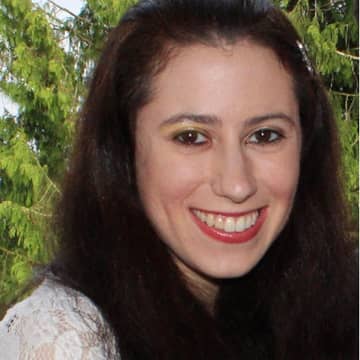"Welcome to Education Hour, the best part of your day, dare I say life!" I joke at the start of Education Hour each weekday. While the patients groan, I know when I'm out, and my "speech" doesn't get said, they miss the consistency and humor that the speech represents.
Consistency and humor are a great way to describe a lot of my interactions with patients. Education Hour brings a small sense of normalcy to our patients' day. I joke that instead of being depressed and anxious, it is the hour they get to be angsty. While other groups often have very heavy but important topics, I keep Education Hour studious but light-hearted. For example, when a patient shared, "I used to be a Straight A student but the Straight-Appressed, so I failed Algebra." I replied, "Of course, math is hard enough to do when you aren't depressed! Now let's take another look at it."
For so many of our patients, school is a huge source of anxiety. I am able to work with their treatment team and home school to create accommodations that will help them manage their anxiety. This includes offering more explicit instructions and outlining a protocol for what a patient should do if they become dysregulated in the classroom. Knowing there's a plan to ensure they can graduate on time allows many patients to feel more comfortable prioritizing their mental health while in treatment (and hopefully beyond!)
While in treatment, I help patients increase their executive functioning skills to manage their workload better when they return to their home school. Additionally, many of our patients have undiagnosed learning disabilities that have contributed to their mental illness. I help them and their families get started on the path to an evaluation, so they can get the academic support they need. I also work a lot with patients in creating structure outside of treatment and future planning. We look at social clubs or classes they can join when they step down and research future career paths. I like to think that Education Hour is the part of the day where they have a chance to dream big about what type of life worth living they want to build.
Many families have shared that, unlike previous treatment centers they have worked with, Pathlight understands that schooling is a critical component of adolescent treatment. Most adolescents' lives, both in terms of social connections and responsibilities, revolve around school, so making sure there's a plan to manage mental health while in school is vital. I often work directly with the treatment team to plan exposures around school and attend 504 and IEP meetings to ensure our discharge plan is as comprehensive as possible.
For me, Education Hour is one of the best parts of my day. I used to be a classroom teacher in NYC, working in schools that prioritized accessible education. When I moved to the Seattle area, I knew I wanted a job in education but not in the public school system. I had seen first-hand how most public schools were administered to worsen students' mental health, especially those who hold marginalized identities. I absolutely love my job here at Pathlight because I can apply the child-centered focus that has always been at the heart of my teaching philosophy. I'm also able to increase access to the content taught in groups for both adolescent and adult patients by consulting on ways to make the lessons more comprehensible for patients with learning disabilities. This has included collecting visuals to go with Dialectical Behavioral Therapy (DBT) and Acceptance Commitment Therapy (ACT) lessons and providing sentence-starters to patients who struggle to express themselves verbally. I love working on this team because every person here is committed to doing all they can to ensure the best outcomes for our patients through thoughtful and creative therapeutic treatments. Plus, coming from a public school, the unlimited access to office supplies is a nice perk.

